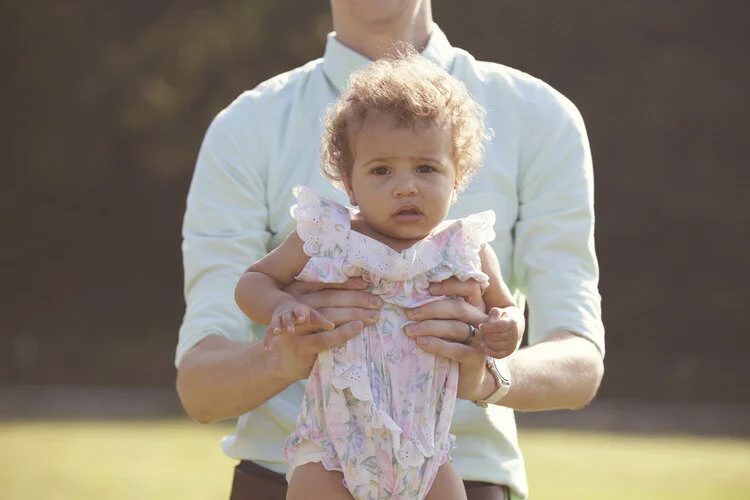It probably comes as no surprise to anyone reading this post that foster care is hard. No one ever said become foster parents, it's super convenient and easy. Rather, the call to foster care is one which embraces the inherent inconveniences and inevitable difficulties as worth it for the sake of redeeming that which is broken and offering light into that which can be very, very dark.
Viewing entries in
Foster Care and Adoption
While orphan care undoubtedly involves changing the life of a child, it inevitably brings about significant and profound change in our own lives as well. For whatever change we may bring about for them, they will no doubt change us in ways we never knew possible.
I'm often asked questions like these: What is the best way to motivate people to get involved with orphan care? How do we recruit more foster families? Are there things we can do to get our church more involved? All good questions that are hard to answer - or maybe not. At the expense of sounding overly simplistic or theologically unrealistic, I can't help but believe the answer to these questions, and the many others like them, is not necessarily what we often assume it to be.
If we're not careful, our care of vulnerable kids and families can become shrouded in an evangelical hero complex that makes it more about us than it is about them. In the end, our good works can be promoted on the backs of the vulnerable to the detriment of making Jesus known as the true Hero in all of this.
While I am incredibly grateful to see a movement towards orphan care well up within the evangelical church in unprecedented ways, I am equally concerned that the rate of growth in zeal may at some point outpace the depth of wisdom we have in how to most appropriately respond to the crisis before us. In the end, if our passion for orphans exceeds our understanding of how to truly serve them, we will do more harm in the cause than we will good.
The weather in my city has been beautiful this week - mid 70's and sunny. The professional basketball team has been on a role, ranking among the highest in their division. The President of the United States even spent the night in one of our downtown hotels on Wednesday. It seems our city has had a pretty good week.
It was never God's intent for children to be left without a family. This is why Scripture says He assumes the role of "father of the fatherless" (Psalm 68:5) and “sets the lonely in families" (Psalm 68:6). This is the heart of God - a good, loving and gracious Father.
It was a Wednesday. We received a call from our foster care agency at 3:30 in the afternoon - a newborn baby girl had been taken into custody by Child Protective Services at the hospital and was in need of placement. "Are you interested?", they asked. Of course we are.
Adoption is less about getting a child for your family and more about giving your family for a child. Caring for children without families does not begin with what they have to offer us but with what we must be willing to offer them, no matter what, at all costs.
As Christians we are called to love and serve God with every aspect of our being. In Mark 12:30 Jesus quotes an Old Testament commandment when He says, “You shall love the Lord your God with all your heart and with all your soul and with all your mind and with all your strength.”
In my city alone there were 9,116 confirmed cases of child abuse last year. That averages out to one child every hour helplessly victimized by those ultimately responsible for providing the care and nurturing they really needed.
My work with The Arrow Foundation involves engaging churches nationwide with resources to equip and mobilize the people of God to care for abused, neglected and orphaned children. Our mission is to see the Church go "All IN" for the cause of fostering, adopting and providing alternative forms of care for those whom God the Father is uniquely concerned - the orphan.
The imagery of adoption is used throughout Scripture to paint a vivid picture of the Gospel - God’s rescuing and redeeming love for us in Jesus. The list could be much longer, but here's 3 ways our care of orphans vividly demonstrates God's care for us in Jesus:
It was never God's intent for children to be without a family. Among the unending evidences that we live in a fatally sin-scarred world, this particular consequence uniquely pains the heart of God. This is why Scripture says He “executes justice for the fatherless” (Deuteronomy 10:18) and He assumes the role of "the father of the fatherless" (Psalm 68:5). This is the heart of God, a good, loving and gracious Father.
We met her for the first time in a downtown courtroom - the same place we would see her for the last time nearly one year later. Although we most likely will never know her beyond that, a piece of her will always be a part of us - literally. It was the first court hearing since her baby girl had been removed from her custody by Child Protective Services and placed in our care a few weeks earlier.
Christmas is the story of a good Father going to extravagant lengths to adopt those who were once separated from Him. It is the celebration of God seeing the plight of His people and responding with the greatest gift of love this world has ever known - Jesus.
I recently spoke at a church in Alaska where there are more than 700 children waiting to be adopted state-wide. Earlier this month thousands of churches recognized "Orphan Sunday" where they prayed for and called their people to respond to the crisis of the nearly 150 million orphans worldwide.
When I was nine years old I learned that the man I had grown up knowing as Dad was actually not my biological father. While this naturally produced many questions in me, it certainly answered one that had always confused me - "Why do I look nothing like my dad?" Now, I knew why.
We recently sat with friends over dinner who shared with us that God was calling them to adopt. They said they always had a sense this would be in store for them, but were hesitant on timing - life had become comfortable for them again with good jobs, two children and an overall healthy rhythm for their family. However, while the benefits of comfort had settled in they began to question to what end. Where would a comfortable life ultimately lead them?
There are certain things in churches we can create that people will participate in - i.e. worship services, pot-luck dinners, small groups, children's ministries and basketball leagues. Whether God is in those activities or not is irrelevant to our ability to implement them and expect participation. Of course, the hope is that God is in them, and that lives are changed as a result of them.









!["All-In Orphan Care" Campaign [PREVIEW]](https://images.squarespace-cdn.com/content/v1/512d2c4ee4b08c7a561ce970/1392222063411-FOONCYT582A2P8T89ZCB/allin_campaign_1.02_sq.jpg)

